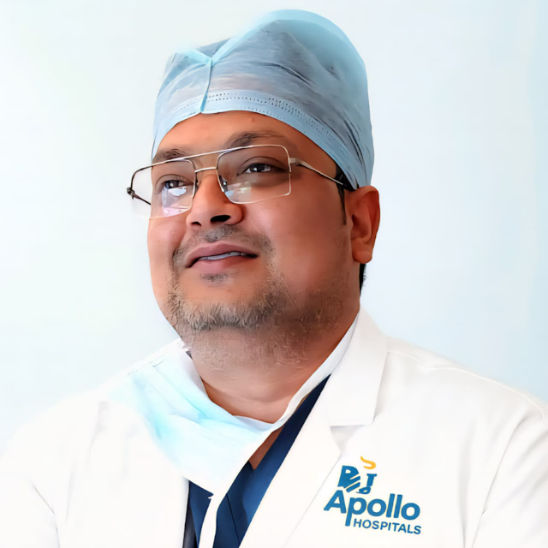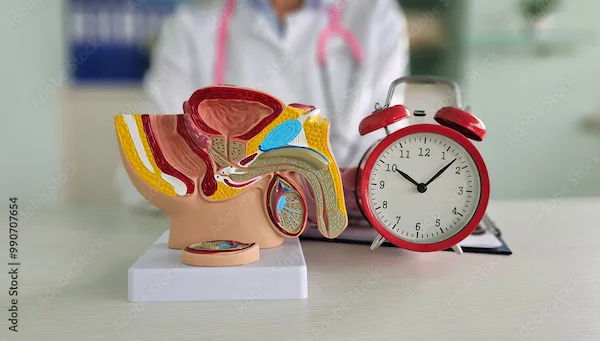Preventing Erectile Dysfunction: A Complete Guide to Causes & Solutions
Learn how to prevent erectile dysfunction with practical lifestyle strategies, diet, exercise, and mental health tips. Understand the causes, early signs, and actionable steps for lasting sexual health.

Written by Dr. Dhankecha Mayank Dineshbhai
Reviewed by Dr. Rohinipriyanka Pondugula MBBS
Last updated on 13th Jan, 2026
_0.webp?tr=q-80,f-webp,w-350,dpr-2,c-at_max 700w)
Introduction
Erectile dysfunction (ED) is a common concern that affects millions of men, yet it is often shrouded in silence and misunderstanding. ED is rarely just a standalone issue; it can serve as a warning sign of your overall health. Think of it as your body's dashboard light, indicating that something beneath the surface needs attention. This guide explores the root causes of erectile dysfunction and offers actionable prevention strategies. We will examine the links between cardiovascular health, lifestyle choices, mental well-being, and sexual function, helping you take proactive steps to protect your vitality and maintain a fulfilling sex life.
Understanding Erectile Dysfunction: More Than Just a Bedroom Issue
Erectile dysfunction is defined as the consistent inability to achieve or maintain an erection firm enough for satisfactory sexual intercourse. Occasional difficulties are normal, but frequent problems may indicate an underlying health issue. ED is not a disease itself but a symptom of physical, psychological, or combined factors.
The Physiology of an Erection: A Delicate Process
An erection is a complex hydraulic event that requires a healthy nervous system to send signals from the brain to the penis, functional blood vessels to deliver blood into the corpora cavernosa, and adequate blood flow to trap the blood for a sustained erection. Any disruption in these processes, whether due to clogged arteries, nerve damage, or hormonal imbalance, can lead to ED.
Consult Top Doctors for Personalised Advice
The Root Causes: What Really Leads to ED?
Understanding the causes is essential for effective prevention.
A. Physical and Medical Causes of Erectile Problems
Most ED cases, especially in older men, are linked to physical conditions.
1. Cardiovascular Conditions: A Clogged Pipeline
Atherosclerosis affects blood flow throughout the body, including the penis. ED can be an early warning sign of heart disease, as restricted arteries reduce blood flow to erectile tissue.
2. Neurological Disorders: Faulty Wiring
Neurological conditions such as multiple sclerosis, Parkinson's disease, spinal cord injuries, and diabetic neuropathy can interfere with nerve signals required for an erection.
3. Hormonal Imbalances: The Chemical Messengers
Low testosterone and other hormonal issues, including thyroid disorders or elevated prolactin, can diminish libido and contribute to ED.
B. Psychological and Emotional Triggers
The mind plays a significant role in sexual performance.
1. Stress, Anxiety, and Performance Pressure
Work stress, financial concerns, or relationship problems can inhibit sexual function. Performance anxiety creates a cycle where worry about ED increases the likelihood of occurrence.
2. Depression and Mental Health
Depression can reduce sex drive, and certain antidepressants may contribute to ED. Mental health management is a key prevention strategy.
C. Lifestyle Factors: The Choices You Make Every Day
Daily habits significantly influence erectile health.
1. The Impact of Smoking and Alcohol
Smoking damages blood vessels, restricting blood flow. Excessive alcohol depresses the nervous system and can lead to nerve and hormonal problems.
2. Sedentary Lifestyle and Obesity
Overweight individuals are at higher risk due to associated cardiovascular disease, diabetes, and low testosterone levels. Lack of exercise compounds these risks.
Proactive Prevention: Your Shield Against ED
Many causes of ED can be prevented or managed through lifestyle adjustments.
1. Heart-Healthy Habits for Erectile Health
A diet low in saturated fats and processed foods, and rich in fruits, vegetables, and whole grains, helps maintain flexible arteries and optimal blood flow.
2. Diet and Nutrition: Fuel for Performance
Foods that support erectile function include:
- Leafy Greens: High in nitrates for blood flow.
- Dark Chocolate: Contains flavonoids to improve circulation.
- Watermelon: Provides citrulline, a precursor to nitric oxide.
- Nuts and Seeds: Rich in L-arginine and healthy fats.
- Berries: Antioxidants protect blood vessels.
3. The Power of Movement and Weight Management
Exercise improves cardiovascular health and testosterone levels. Recommended activities include:
- Aerobic Exercise: Brisk walking, jogging, swimming, cycling.
- Strength Training: Builds muscle and supports hormonal balance.
- Kegel Exercises: Strengthen pelvic floor muscles to maintain erections.
4. Prioritising Mental and Emotional Well-being
Stress-reduction techniques such as meditation, deep breathing, or yoga support sexual health. Seek therapy for anxiety, depression, or relationship difficulties.
5. Sleep, Stress Reduction, and Healthy Habits
Aim for 7–9 hours of sleep nightly, which supports testosterone production. Avoid smoking, limit alcohol, and maintain a consistent exercise routine to optimise erectile function.
When Prevention Isn't Enough: Seeking Professional Help
Persistent ED despite lifestyle adjustments requires consultation with a healthcare professional. Early signs should not be ignored. A doctor can identify underlying conditions like diabetes, heart disease, or low testosterone. If further evaluation is needed, book a physical visit to a doctor with Apollo24|7. Treatments may include oral medications, hormone therapy, or other advanced interventions.
Conclusion
Erectile dysfunction is treatable and often preventable. Viewing ED as an indicator of overall health allows you to address underlying issues proactively. Prevention strategies involve nutritious food, regular exercise, stress management, and avoiding harmful habits. By taking control today, you invest in your long-term vitality and sexual health. Implement one change at a time, maintain consistency, and seek professional guidance when necessary.
Consult Top Andrologists
Consult Top Andrologists

Dr. Anand Ravi
General Physician
2 Years • MBBS
Bengaluru
PRESTIGE SHANTHINIKETAN - SOCIETY CLINIC, Bengaluru

Dr. Sreeparna Roy
Obstetrician and Gynaecologist
8 Years • MBBS , MS (OBSTETRICS & GYNAECOLOGY), Fellowship in Infertility, Endoscopy & Ultrasonography), Fellowship in Laparoscopy & Hysteroscopy,DRM
Kolkata
Dr Utsa Basu Clinic, Kolkata

Dr. Gaurab Dasgupta
Urologist
14 Years • MBBS, MS General Surgery, MCH Urology, FMAS
Kolkata
MCR SUPER SPECIALITY POLY CLINIC & PATHOLOGY, Kolkata

Dr R Vishnuraja
Andrology
8 Years • MBBS (2012), Madurai Medical College, Madurai; MS (General Surgery) (2017), Maulana Azad Medical College, New Delhi; MCh (Urology) (2021), Kilpauk Medical College, Chennai
Madurai
Apollo Speciality Hospitals KK Nagar, Madurai

Dr. Amvrin Chatterjee
Urologist
10 Years • MBBS, MS, DNB, MCh
Kolkata
Apollo Multispeciality Hospitals , Kolkata, Kolkata
Consult Top Doctors for Personalised Advice

Dr. Anand Ravi
General Physician
2 Years • MBBS
Bengaluru
PRESTIGE SHANTHINIKETAN - SOCIETY CLINIC, Bengaluru

Dr. Sreeparna Roy
Obstetrician and Gynaecologist
8 Years • MBBS , MS (OBSTETRICS & GYNAECOLOGY), Fellowship in Infertility, Endoscopy & Ultrasonography), Fellowship in Laparoscopy & Hysteroscopy,DRM
Kolkata
Dr Utsa Basu Clinic, Kolkata

Dr. Gaurab Dasgupta
Urologist
14 Years • MBBS, MS General Surgery, MCH Urology, FMAS
Kolkata
MCR SUPER SPECIALITY POLY CLINIC & PATHOLOGY, Kolkata

Dr R Vishnuraja
Andrology
8 Years • MBBS (2012), Madurai Medical College, Madurai; MS (General Surgery) (2017), Maulana Azad Medical College, New Delhi; MCh (Urology) (2021), Kilpauk Medical College, Chennai
Madurai
Apollo Speciality Hospitals KK Nagar, Madurai

Dr. Amvrin Chatterjee
Urologist
10 Years • MBBS, MS, DNB, MCh
Kolkata
Apollo Multispeciality Hospitals , Kolkata, Kolkata
More articles from Erectile Dysfunction
Frequently Asked Questions
Can young men get erectile dysfunction, and how can they prevent it?
Yes, young men may experience ED, often due to psychological factors such as stress or performance anxiety, as well as lifestyle influences like poor diet, substance use, or excessive pornography. Prevention focuses on healthy habits, mental well-being, and open communication.
Are there any specific vitamins for male enhancement and preventing ED?
Deficiencies can contribute to ED. Nutrients such as Vitamin D (supports testosterone), L-arginine and citrulline (support nitric oxide production), and zinc (supports hormone function) may help. Supplements should be considered under medical guidance.
How long does it take for lifestyle changes to reverse erectile dysfunction?
Improvement varies by individual and underlying cause. Some men notice better blood flow and erections within weeks, while others may require months of consistent lifestyle adjustments.
Is erectile dysfunction always permanent?
No, ED is often reversible, especially when caused by psychological factors or lifestyle issues. Chronic conditions may require treatment, but management can restore normal sexual function.
What is the link between biking and erectile dysfunction?
Extended cycling on narrow seats can compress nerves and blood vessels in the perineum, leading to temporary numbness or ED. Using an ergonomic seat, taking breaks, and standing periodically can prevent issues.


.webp)

